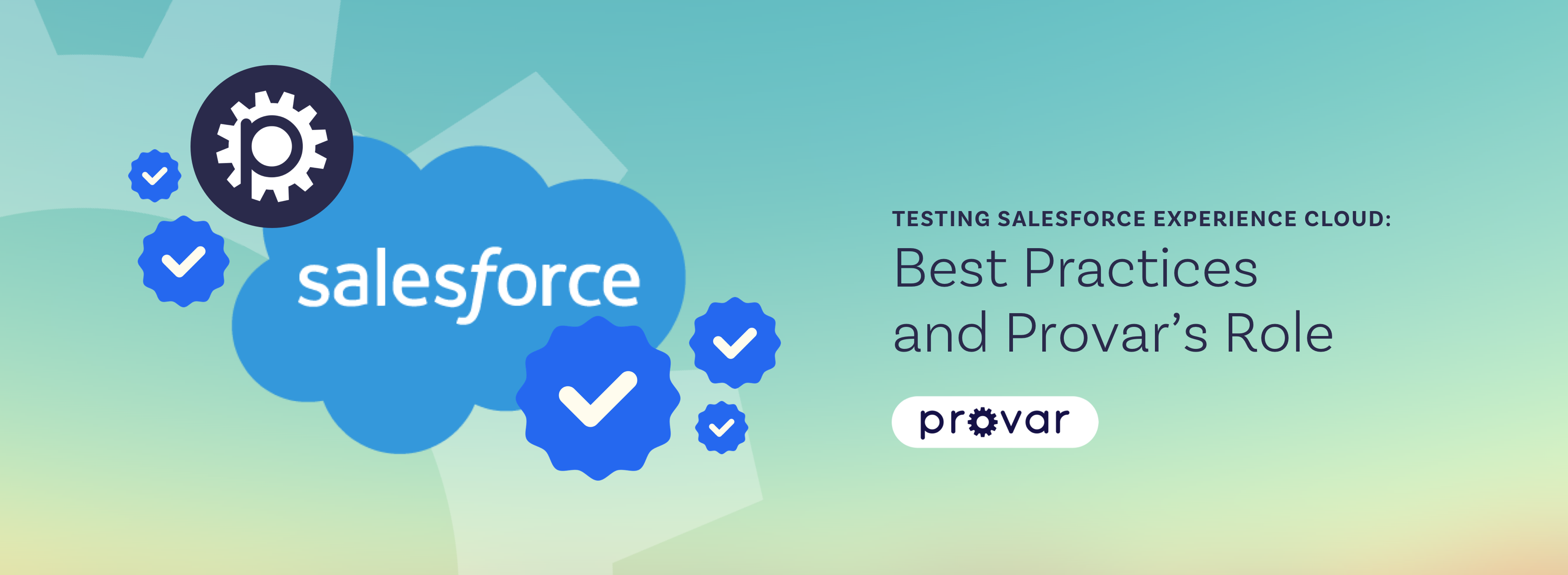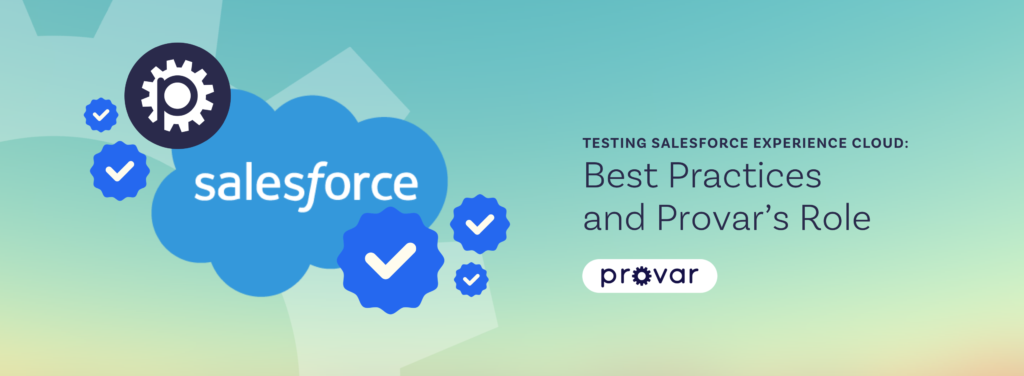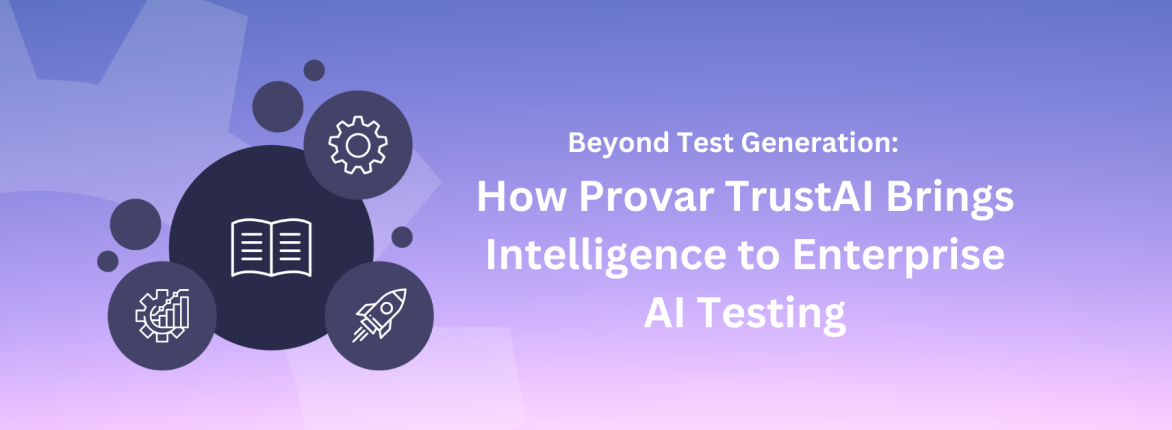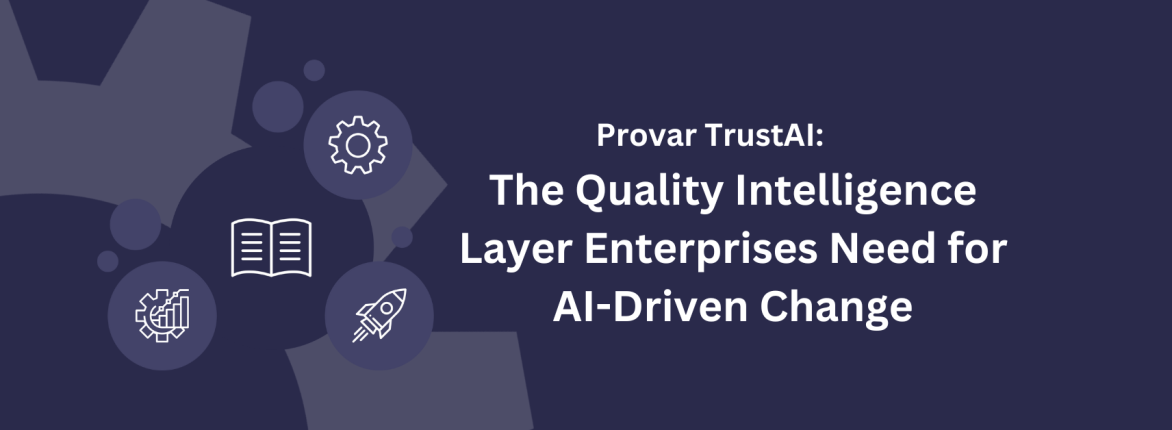Salesforce Experience Cloud empowers businesses to create engaging digital experiences, from customer portals to partner communities. But ensuring these experiences run flawlessly requires strategic testing, and understanding the underlying technology and testing considerations is crucial to seamless development and deployments within your Salesforce ecosystem.
In today’s blog, we’re talking about Experience Cloud — what it is, how it works, what to consider when testing Salesforce, and how Provar can help. Keep reading to learn more!
For a live demo and a deeper dive into testing Experience Cloud with Provar, check out our upcoming webinar! Sign up here, or check our YouTube page after the event for a recording!
What is Salesforce Experience Cloud?
Salesforce Experience Cloud — formerly known as Community Cloud — gives businesses the power to create branded digital spaces where customers, partners, and employees can connect. Whether it’s a self-service portal, a customer community, or an internal internet, Experience Cloud helps organizations deliver personalized experiences, streamline collaboration, and share content seamlessly.
Because it’s deeply integrated with Salesforce, Experience Cloud makes it easy to build interactive, data-driven experiences that enhance engagement, improve customer support, and optimize business processes — all while keeping everything connected within your Salesforce ecosystem.
Key Use Cases for Salesforce Experience Cloud
Thanks to its flexibility, Experience Cloud can support a wide range of business needs. Some of the most common use cases include:
- Customer Self-Service Portals: Give customers a place to find answers, submit support cases, track service requests, and access knowledge bases — all in one convenient platform.
- Partner Portals: Provide external partners with a centralized hub for deal registration, lead management, content sharing, and collaborative sales efforts.
- Employee Intranets: Help internal teams stay connected with portals that centralize HR resources, training materials, project collaboration tools, and company updates.
- Membership Portals for Nonprofits: Keep members engaged with platforms that support event management, content distribution, and member services.
- Customer Communities for Product Support: Build vibrant communities where customers can discuss products, share tips, and help one another — reducing the load on customer service teams.
Technologies Behind Salesforce Experience Cloud
Experience Cloud is built on a foundation of advanced technologies that enable scalable, customizable, and high-performance digital experiences:
- Lightning Web Components (LWCs): The core of Salesforce’s development frameworks, LWCs are modern, reusable components that enhance site functionality and performance.
- Lightning Web Runtime (LWR): Optimizes high-performance sites by delivering static content via Content Delivery Networks (CDNs) while dynamically fetching data through APIs.
- HTML5/CSS3 and JavaScript: Ensure responsive design and seamless cross-browser compatibility.
- Salesforce Lightning Design System (SLDS): Provides a cohesive look and feel with design patterns that align with Salesforce’s UI standards.
Key Areas to Focus on When Testing Experience Cloud
Thorough testing is essential to ensure Experience Cloud runs smoothly, performs well, and delivers a seamless user experience. Some of the key areas to prioritize include:
Functionality Testing
- Custom Features & Components: Verify that custom LWCs and integrations work as expected.
- User-Specific Behavior: Test role-based access and personalized content to ensure users see the right data based on their permissions.
User Experience Validation
- Responsive Design: Ensure the site displays correctly across different devices and screen sizes.
- Intuitive Navigation: Test menus, links, and content layouts for ease of use and accessibility.
Performance Optimization
- Page Load Times: Identify and resolve bottlenecks that impact load speed, especially under high traffic.
- API Response Times: Ensure APIs deliver dynamic content quickly and efficiently.
Compliance with Standards
- Security Standards: Verify adherence to Salesforce security best practices and regulatory requirements like GDPR and HIPAA.
- Accessibility Standards: Ensure WCAG compliance for users with disabilities.
Integration Testing
- Validate seamless data flow between Experience Cloud, other Salesforce applications, and external systems.
Regression Testing
- Confirm that Salesforce updates or new releases don’t disrupt existing functionality.
Business Continuity Testing
- Ensure critical business processes remain functional, even during updates or unexpected disruptions.
Key Capabilities For Testing Salesforce Experience Cloud
Automating Experience Cloud testing requires a solution that can handle the platform’s dynamic nature while ensuring reliability and efficiency. Solutions like Provar are designed to address these challenges. When searching for a tool to help you streamline your testing processes, look for these key capabilities:
End-to-End Flow Automation
- Complex Workflow Testing: Automate intricate business workflows that span Salesforce CRM and Experience Cloud, including case management, lead tracking, and approval processes.
- Cross-Application Validation: Ensure data consistency and process integrity across integrated Salesforce applications.
- Third-Party System Integration: Simplify testing for external integrations, such as ERP systems, marketing automation platforms, and payment gateways.
User Authentication and Access Control
- MFA and SSO: Verify multi-factor authentication (MFA) and single sign-on (SSO) configurations for secure user access.
- Role-Based Access: Ensure users at different permission levels have appropriate access to data and features.
- User Experience: Assess navigation flow, content accessibility, and interactive elements to confirm a seamless experience.
Security and Compliance Testing
- Data Security Validation: Confirm compliance with regulations like GDPR and HIPAA to protect sensitive information.
Regression Testing
- Post-Release Validation: Run automated regression tests to ensure new Salesforce updates don’t disrupt existing functionality.
- Version Compatibility: Maintain test effectiveness as Salesforce evolves, preventing failures due to platform changes.
Email and Notifications
- Email Trigger Validation: Verify that automated emails triggered by Experience Cloud events are accurate and delivered as expected.
- Cross-Platform Notification Testing: Ensure notifications function consistently across various devices and platforms.
Ease of Test Automation
- Low-Code Automation: Utilize an intuitive interface to create and manage test cases with minimal coding effort.
- Advanced Scripting for Complex Scenarios: Support custom API testing and scripting for unique business requirements and complex customizations.
Self-Healing Test Scripts: Use resilient test scripts that adapt to UI changes, reducing maintenance overhead.
Real-World Testing Scenarios Across Industries
To ensure a seamless Experience Cloud implementation, testing should align with industry-specific use cases. Below, we’ve included testing scenarios for different sectors, focusing on critical processes that impact functionality and user experiences.
Customer Support Portal (Financial Services)
Scenario: A financial institution uses Experience Cloud to provide a customer support portal where users can submit cases, track status updates, and access FAQs.
Key Testing Areas:
- Secure Login and Personalization: Verify that customers can log in securely and access personalized dashboards displaying account details and recent activities.
- Case Management Workflow: Ensure case creation functions correctly, including field validations, mandatory fields, and dynamic picklists based on case type.
- Automated Case Routing: Test that cases are assigned to the right agents based on priority, category, and availability.
- Knowledge Base Functionality: Validate that knowledge articles surface dynamically based on user profiles and past interactions to enhance self-service support.
- Post-Update Regression Testing: After Salesforce releases, confirm that Services Cloud integrations continue to function as expected.
Partner Portal (Retail/Consumer Goods)
Scenario: A consumer goods company uses Experience Cloud to provide partners with access to product catalogs, promotional materials, and sales reports.
Key Testing Areas:
- Partner Registration & Onboarding: Verify multip-step approval workflows, role assignments, and access to onboarding documentation.
- Sales & Marketing Resources: Ensure partners can download marketing collateral and view real-time sales reports tailored to their partnership level and region.
- Product Catalog Filtering: Test dynamic filtering by category, pricing tier, availability, and promotional offers per partner agreements.
Salesforce CPQ Integration: Validate that quoting, pricing, and contract generation processes work seamlessly within the portal.
Community Portal (Healthcare)
Scenario: A healthcare provider uses Experience Cloud for a patient portal to manage appointments, view lab results, and communicate securely with healthcare providers.
Key Testing Areas:
- Appointment Scheduling: Ensure patients can book, modify, and cancel appointments based on real-time provider availability.
- Secure Access & Compliance: Validate login mechanisms, including two-factor authentication, to meet HIPAA and data security regulations.
- Role-Based Data Access: Confirm that lab reports are only accessible to authorized users, maintaining privacy and security.
- Patient Case Management: Test functionality for submitting inquiries, receiving responses from healthcare staff, and tracking case progress.
- EHR System Integration: Verify seamless synchronization with external Electronic Health Record (EHR) systems for up-to-date patient data.
Conclusion
Salesforce Experience Cloud empowers organizations to create dynamic, interactive digital experiences for customers, partners, and employees. However, its complexity requires thorough testing to ensure seamless functionality, security, and user satisfaction. Provar’s purpose-built automation solutions simplify the testing process, providing reliable, scalable validation for every aspect of your Experience Cloud implementation. By focusing on critical testing areas and leveraging Provar’s advanced capabilities, businesses can confidently deliver high-performing, user-friendly portals that drive engagement and success.
Want to learn more about how Provar can help you reach your automation goals? Schedule a call with a Provar expert today!










